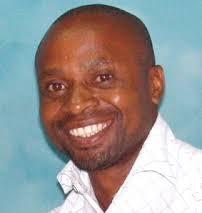Nigeria – Open for business?

Finance Minister Segun Aganga
Peter Cunliffe-Jones
The author’s book My Nigeria – Five decades of independence is published by Palgrave Macmillan on September 23. Cunliffe-Jones was Lagos bureau chief of AFP news agency from 1998-2002 and is today head of AFP English online news, based in London. To attend the launch of My Nigeria please see the event details here
————————————————————————————-
When politicians, or even technocrats, come to office the world over — thrilled to get their hands on the levers of power after years in opposition or in important, but less prominent, jobs — it perhaps seems to them that things have really changed.
As foreign leaders call to offer congratulations and officials open up the files for their attention, the world as they knew it has indeed been transformed, while often progress in the world the rest of us inhabit might seem a little slower.
Witness the rapid change in tone from Britain’s new prime minister, David Cameron, only weeks after squeaking to victory in elections this year. In the run-up to that vote, the country was “broken Britain”. Weeks later, in a speech in July, he told an audience in New York: “Britain is open for business”.
So it was no surprise to hear Segun Aganga, the former Goldman Sachs managing director named earlier this year as Nigerian finance minister, declare in London this month that that country, too, is now “open for business”. A quick search online shows similar statements made in 2002, 2005 and 2007 by his predecessors too.
To be fair to the minister, the evidence for the claim this time is better than on some of those previous occasions.
Economic growth since military rule ended in 1999 has averaged 6 percent per year and, Aganga told the BBC this month, is expected to hit double figures by the end of next year, or early 2012. Things are clearly on the up.
More importantly for the ninety-nine percent of Nigerians who work outside the oil and gas sector, the growth is not all in oil and gas. Instead, the non-oil sector has grown by an impressive 24 percent this year, Aganga claimed.
But does this year mean that the country is “open for business”?
Privatisation of a range of sectors since 1999 has certainly opened up many new opportunities for foreign and local businesses around Nigeria. Action has been taken, including recent action, to tighten up and clean up the powerful finance sector. There has been some infrastructure improvement in the business capital, Lagos. Even the advent of improved communications – with the entry of mobile phones and the Internet since military rule ended – has made business easier across the nation.
But is this enough to make Nigeria easy to do business in? Nigerian businessmen I talk to say no. The change has only gone so far.
When I visited Nigeria recently, I stayed in Abuja with a Nigerian friend then working on a project to improve the business climate by making business groups better lobbyists for their members’ interests. While I was there, he resigned in frustration.
Most of the points raised regularly by Nigerian businessmen and women as obstacles to doing business in almost all sectors – poor roads and rail, unstable power supplies, and endless bureaucratic hurdles to climb – are as bad as ever, he said. And while there are several reformers such as Minister Aganga in high places in government, the leaders of the business groups who were supposed to be fighting these obstacles were not interested in doing so, my friend told me. Instead of looking out for their members, the business leaders were looking out for themselves.
Others said the same. And, therein, I believe, lies the reason why it remains difficult to business in Nigeria: because the business sector does not come together to government at every level to bring necessary change.
In Britain, the leading Labour politician Ed Miliband two years ago told The Guardian newspaper that politicians hoping to tackle climate change needed popular support if they were to be able to bring change. “Political change comes from leadership and popular mobilisation. And you need both of them,” he said. “Even good leaders cannot act if they are alone.”
In Indonesia, a country I often visited when I worked in Asia a few years ago, I was told the reason the country had developed economically far faster than others such as Nigeria was that its leadership, at all levels, had come under pressure both from civil society movements and a powerful business sector to bring real change. Life in Indonesia today is not easy, but it is a lot easier than in Nigeria.
“Political parties, the military, the bureaucracy, and selective elements of civil society (such as business or professional associations) are instrumental in fortifying consensus around a policy regime,” says the American academic Peter M. Lewis, who has studied both countries.
In his autobiography, written five decades ago on the verge of independence in 1960, one of Nigeria’s great independence leaders, Obafemi Awolowo, identified three factors a country needed to have in place if it were to develop, socially and economically.
Adequate resources — which Nigeria clearly has in abundance — was one. A body of skilled technocrats to properly manage those resources was another. And with people of the calibre of Aganga in office Nigeria clearly has those. And third, was a strong civil society to keep its leaders, at all levels, on the right path, managing the technocrats.
The problem in Nigeria, said Awolowo, is that: “A public opinion strong and healthy enough to discourage irresponsibility and rascality in public life still has to be developed. A sense of civic responsibility on the part of the generality of our people is still to be cultivated.”
Before Nigeria is really open for business, history suggests business leaders need to start properly to lobby officials at every level to make the changes business needs. If they do, it might just help the reformers such as Minister Aganga.







Nigeria is The Big One. You cant ignore it and stay out hoping one day it will get better. When enough Nigerians in powerful and influential positions relly want it to change, it will change. As opportunities open up outside the oil and gas industries the possibilities for driving corruption out of the system become greater. because oil and gas money comes in right at the top and flows downward it is almost impossible to clean up that system but if the money flows from the bottom – as it does in most businesses which are trying to make and sell things, then the pressure to have a clean transparent system is much greater. Do you need to bribe someone to buy a mobile phone or a phone card?
Western (and Eastern) governments and companies will always do business with Nigeria no matter how corrupt or violent it is is, because it is where the money is. Their mistake has been to believe that one person can change Niegria. This is unlikely. It needs a whole network of people, committed, working together, trusting each other, good slowly squeezing out bad. The role of Western countries, especially the UK, is to strengthen its anti-corruption laws and shut down its untransparent off-shore tax havens where most of Nigeria’s wealth lies.Â
Â
But it is up to Nigerian business to change the busines climate in Nigeria, Nigerians trading with other parts of the world who want to do things by international standards, not the Nigerian way. They will create the change needed. That is already happening with initiatives like the Nigeria Leadership Forum. Â
I am optimistic about Nigeria. I don’t know how not to be. I therefore seek out opportunities to reinforce my optimism. When I heard about this event I took the day off from work to attend. My biggest Nigerian hero among the political class happens to be a Former Minister of Finance in Nigeria – Ngozi Okonjo Iweala. In her, I saw an example of the “Nigerian” I so desired to lead my country. Honest, articulate, warm and most importantly – emotionally in touch with the people; ordinary people.
As Nigeria’s current Minister of Finance spoke to the elite audience at Bloomberg, I wondered whether he quite realised the opportunity he has in our history. He read from a prepared speech, and reeled out statistics and quoted from studies. I was disappointed, really disappointed. I could read all that from my weekly subscriptions to a myriad of afrocentric journals I subscribe to. This is not why I came to listen. I wanted to know what he has done, what he is doing and what he plans to do. I wanted to be convinced that change was really in the air. I wanted to look around and see others convinced. I wanted to hear about why all those banks have been in limbo for 1 year, and I wanted answers to so many other questions. But maybe I was expecting too much. But no….I wasn’t. Segun came to life in the question and answer session…but alas time had run out. He lost a great opportunity to win hearts and minds for Nigeria.
Once in a long time – someone comes along and carries the hopes and aspirations of 150 million Nigerians. Ngozi Iweala’s greatest achievement is probably not in the transformation she brought to the financial sector in Nigeria but to restoring confidence in a whole generation of Nigerians that all hope was not lost. Lets hope that Segun drops the prepared speeches and speaks as eloquently as we know him to be able to.
Change does not happen over night…change is a process not an event. Nigeria may still challenges but it is undeniably on the way up regardless of what the critics have to say and an increasing number of international fund managers share the same sentiment.
Let me give some examples of projects that I believe will change the nigerian economy and by extension nigerian politics forever. Note that every time Nigeria has liberalized a sector it has always led to explosive growth in that sector with multiplier effects on the rest of the economy. Telecoms, banking, media, cement etc have all witnessed explosive growth after liberalization…we are about to witness the same in the energy sector with the PIB and electricity and the effects on economic growth will far above all the rest of the other liberalizations combined.
The Lekki Free Trade Zone which i think will be one of the largest in the world will finally bring together Nigeria huge natural and human resources to drive manufacturing in country as never before. Note the Chinese who are building a number industrial zones in Africa have 4 in Nigeria and not a single one in western favorite South Africa (despite the fact it possesses more industrial raw materials than Nigeria) which should give an insight into which country they think is going to dominate Africa in the future.
Railway buliding in Nigeria is also exploding with the current building of the lagos to kano line as well as proposals for the east to west line. Note that Nigeria has been able to sustain an average 6% GDP growth rate with just roads (as inadequate as they are)…imagine what will happen when railways come into the play.
Let no one fool you Aganga knows what he’s talking about when he says Nigeria will hit double-digit growth rates on average this coming decade. Guess what…he’s not the only who thinks so…an increasing number of fund managers plus the Chinese as well as South African investors think so too